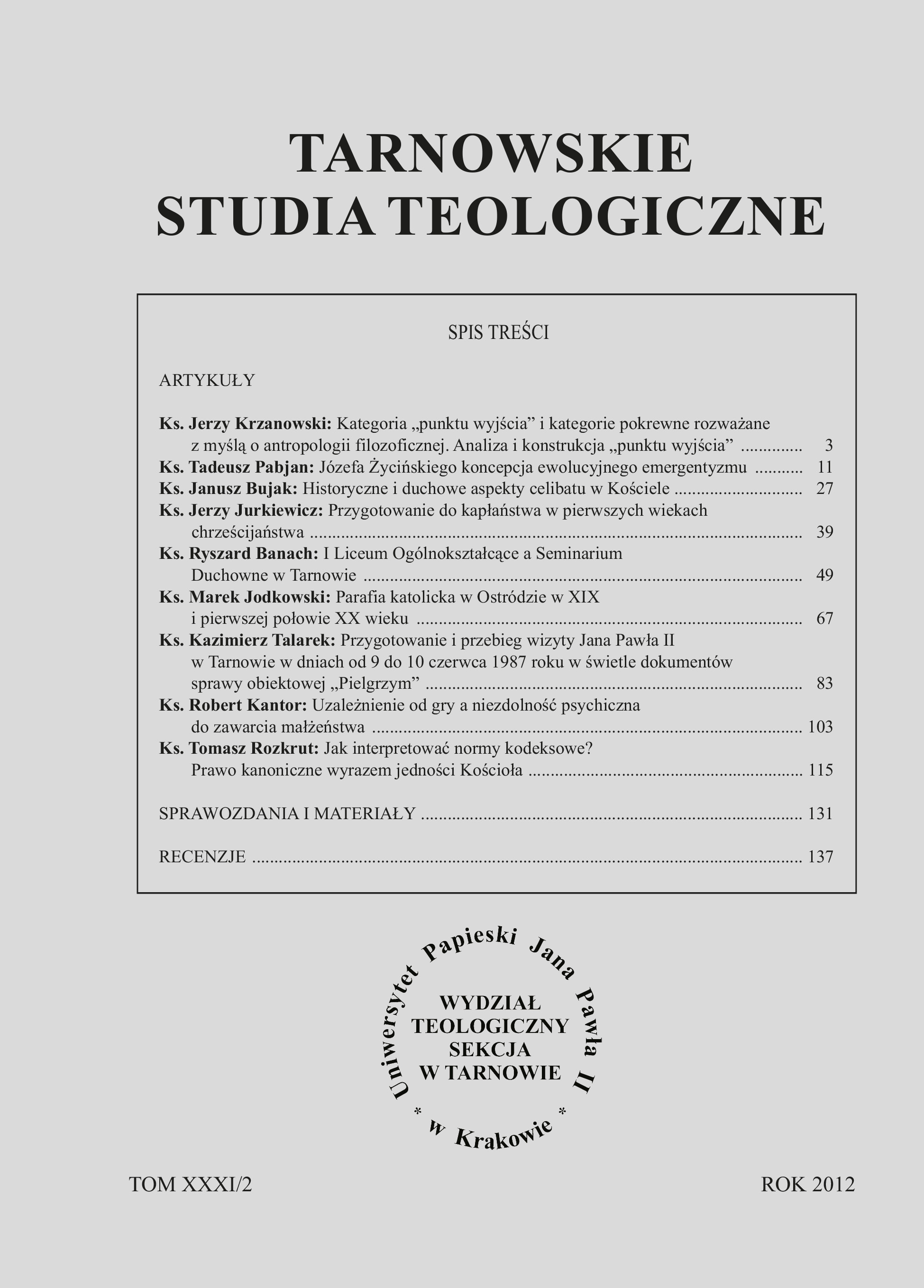Kategoria "punktu wyjścia" i kategorie pokrewne rozważane z myślą o antropologii filozoficznej. Analiza i konstrukcja "punktu wyjścia"
Category of „starting point” and related categories for philosophical anthropology. Analysis and construction of „starting point”
Author(s): Jerzy KrzanowskiSubject(s): Anthropology, Philosophy, Methodology and research technology
Published by: Wydawnictwo Naukowe Uniwersytetu Papieskiego Jana Pawła II w Krakowie
Keywords: starting point; method; assumptions; basic sentences; first consciousness acts;
Summary/Abstract: The very description of the „starting point” needs plenty of explanations, let alone its choice for a given science. Whereas „articulation and choice of a starting point (…) is already taking a position respecting a given subject and determining the direction of further dealing”27. You cannot avoid taking a position, because in order to practice any science, a way of dealing should be taken. Stating point is a place that in a way impinges on the further scientific work, on achieving its goal, so each researcher has to define it (more or less directly). We tried to show in this article that each research, each scientific action has its starting point – even if we verbally define it differently (beginning, basic sentences, starting line, genesis…). Our considerations can be schematically presented in the form of the following chart depicting various connotations of „starting point” categories: starting point objective 1. first data to be adopted or investigated 2. first theses – assumptions (sentence – thesis) 3. first operations (to claim, verification) subjective 4. (first) acts of human consciousness.
Journal: Tarnowskie Studia Teologiczne
- Issue Year: 31/2012
- Issue No: 2
- Page Range: 3-9
- Page Count: 7
- Language: Polish

